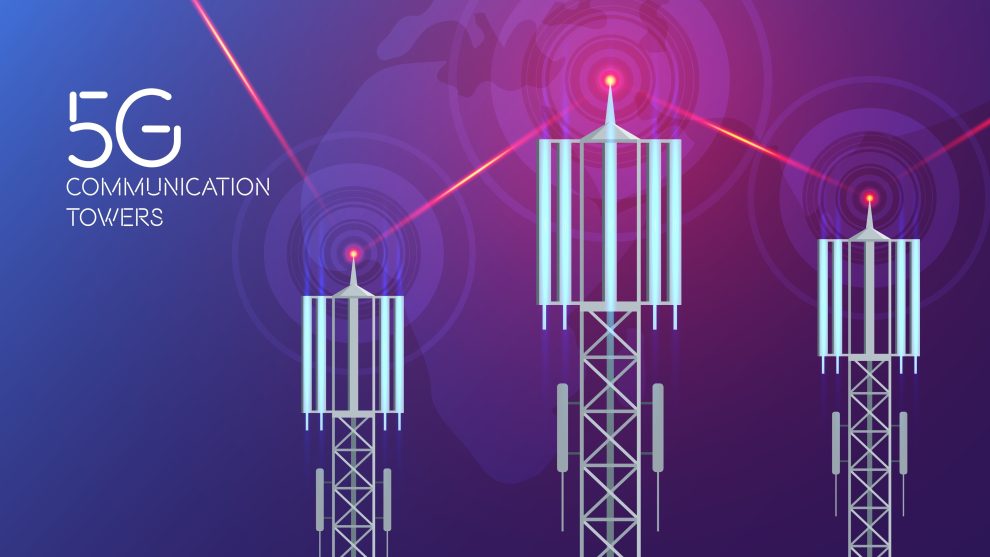In a significant legal development, the Supreme Court of India has once again reaffirmed its stance on the contentious issue of Adjusted Gross Revenue (AGR), delivering a major blow to telecom operators in India. On Thursday, the apex court rejected the plea filed by Vodafone Idea, Bharti Airtel, and other telecom operators seeking a recalculation of their AGR dues.
This decision stems from a long-standing dispute over the interpretation of AGR, a crucial element that governs the revenue-sharing mechanism between the government and telecom operators. Telecom companies have been seeking relief from what they believe to be erroneous and excessive dues calculated by the Department of Telecommunications (DoT). However, the court’s latest verdict firmly closes the chapter on this legal battle, leaving telecom operators grappling with a staggering financial burden.
Understanding AGR: The Core of the Dispute
Adjusted Gross Revenue (AGR) refers to the revenue metric used by the government to determine the licensing and spectrum usage fees payable by telecom operators. This metric has been at the center of a heated debate between the DoT and telecom companies for more than a decade. The crux of the disagreement lies in the definition of AGR, with telecom companies arguing that it should encompass only core telecom services, while the government insists that all revenues, including non-core services like rent, dividends, and asset sales, should be considered.
The 2019 Verdict: A Landmark Ruling
The legal tussle between telecom operators and the government dates back to 2005, but it reached its pinnacle in October 2019 when the Supreme Court delivered a landmark judgement. The court ruled in favor of the government, stating that the definition of AGR must include both core and non-core revenues. This decision effectively sealed the fate of telecom operators, who were left with liabilities totaling more than ₹90,000 crore. For Vodafone Idea and Bharti Airtel, two of India’s largest telecom players, this verdict was particularly devastating, as it drastically inflated their financial obligations.
Following the 2019 ruling, the telecom companies had little choice but to approach the court seeking more time to clear their dues. In September 2020, the Supreme Court granted some reprieve by allowing the operators a 10-year period to settle their liabilities.
The Curative Plea: A Last-Ditch Effort
Despite the court’s earlier rulings, telecom operators continued to push for relief. In 2021, they filed curative petitions, a rare legal recourse, arguing that the calculation of their AGR dues by the DoT was riddled with errors. The companies claimed that the department had made “arithmetic errors” in calculating the dues and sought permission to approach the DoT for a recalculation.
Curative petitions are typically filed when all other avenues for legal redress have been exhausted, and they require the petitioner to demonstrate a “grave miscarriage of justice”. In this case, the telcos argued that they had been unfairly burdened with excessive dues due to the faulty calculations by the government. However, the Supreme Court dismissed these petitions, stating that there was no basis for reopening the matter.
Join BharatiyaMedia WhatsApp Channel for regular updates on SMEs, Startups and Businesses
The Latest Verdict: No Recalculation of AGR Dues
In its latest ruling, the Supreme Court has once again rejected the telecom operators’ plea for a recalculation of AGR dues. This decision marks the final nail in the coffin for Vodafone Idea and Bharti Airtel, as the court categorically stated that there would be no further reconsideration of the dues. The operators now have no option but to comply with the court’s earlier directive and continue paying their AGR liabilities over the 10-year period.
This ruling comes at a time when Vodafone Idea, in particular, is struggling to stay afloat in a highly competitive market dominated by players like Reliance Jio and Bharti Airtel. With mounting debts and dwindling revenues, the company has been exploring various options to raise funds and keep its operations running. The court’s refusal to provide any relief on the AGR front has further exacerbated the financial woes of the telecom giant.
Impact on the Telecom Industry
The Supreme Court’s decision to reject the plea for AGR dues recalculation is expected to have far-reaching consequences for the Indian telecom industry. Here’s how:
- Vodafone Idea’s Future in Jeopardy: The company’s financial position was already precarious, and the court’s ruling leaves it with limited options. Vodafone Idea has been seeking to raise funds through equity and debt, but the uncertainty surrounding its AGR liabilities has made investors wary. Without significant financial backing, the company faces the risk of collapse, which could reduce competition in the market.
- Bharti Airtel’s Debt Burden: While Bharti Airtel is in a relatively stronger position than Vodafone Idea, the company is not immune to the financial strain caused by AGR dues. The rejection of the recalculation plea means that Bharti Airtel will have to continue making payments towards its ₹43,000 crore liabilities, further stretching its balance sheet.
- Reliance Jio’s Competitive Edge: Reliance Jio, the disruptive player in the Indian telecom market, is in a much better position compared to its rivals. The company’s financial health, coupled with its aggressive pricing strategies, has allowed it to capture a significant market share. With Vodafone Idea teetering on the brink and Bharti Airtel focusing on managing its debt, Reliance Jio could further consolidate its dominance in the sector.
The Government’s Role in the AGR Dispute
The government’s role in the AGR dispute cannot be overlooked. The Department of Telecommunications (DoT) has consistently maintained that all revenue generated by telecom operators, including non-core revenues, should be included in the calculation of AGR. This position has been supported by the Supreme Court, which has repeatedly upheld the government’s definition of AGR.
At the same time, the government has taken steps to provide some relief to the telecom sector. In 2021, it introduced a reform package aimed at easing the financial burden on telecom companies. The package included measures such as a moratorium on spectrum payments and the conversion of interest on AGR dues into equity. As a result, the government now holds a 23% stake in Vodafone Idea, following the conversion of interest dues into equity.
However, the latest Supreme Court ruling indicates that the court is not inclined to interfere with the DoT’s calculations of AGR dues, despite the reforms introduced by the government.
Join BharatiyaMedia WhatsApp Channel for regular updates on SMEs, Startups and Businesses
The Road Ahead for Vodafone Idea and Bharti Airtel
For Vodafone Idea and Bharti Airtel, the road ahead is fraught with challenges. The court’s refusal to allow a recalculation of AGR dues means that both companies will have to continue shouldering the financial burden imposed by the 2019 verdict.
Key Strategies for Survival:
- Fundraising Efforts: Vodafone Idea has been actively seeking investors to infuse fresh capital into the company. The Supreme Court ruling adds urgency to these efforts, as the company will need significant funds to meet its debt obligations and sustain its operations.
- Tariff Hikes: Both Vodafone Idea and Bharti Airtel have been considering tariff hikes to improve their revenue streams. While such moves could help alleviate some financial pressure, they could also risk alienating price-sensitive customers in India’s competitive telecom market.
- Strategic Partnerships: Bharti Airtel has been exploring partnerships and collaborations with global tech giants to strengthen its position in the market. For Vodafone Idea, forming strategic alliances may be essential to secure its future in the industry.
Conclusion: A Grim Outlook for Telecom Operators
The Supreme Court’s decision to reject the plea for AGR dues recalculation is a major setback for telecom operators in India. While the ruling brings clarity to the long-standing AGR dispute, it also leaves companies like Vodafone Idea and Bharti Airtel with little room for maneuver. The financial strain imposed by the court’s verdict is likely to have lasting repercussions on the Indian telecom industry, with potential implications for competition, pricing, and innovation in the sector.
As Vodafone Idea and Bharti Airtel brace themselves for the challenges ahead, the focus now shifts to their ability to navigate the financial storm and emerge as viable players in a rapidly evolving telecom landscape. For now, however, the road to recovery seems long and uncertain.
Key Takeaways:
- The Supreme Court has rejected telecom operators’ plea for recalculation of AGR dues.
- Vodafone Idea and Bharti Airtel face significant financial challenges due to the ruling.
- The court’s decision solidifies the government’s definition of AGR, including both core and non-core revenues.
- The telecom sector may witness further consolidation as operators grapple with mounting debts.
Source: NDTV edited.
For more insights on SME, Startup and Businesses, visit BharatiyaMedia.com. For editorial inquiries, email sharma.maayank@yahoo.com, and for advertisements and other enquiries, contact us at contact@entrepreneur.org.in.
Read these article also:
Exploring Chhattisgarh: The Heart of Central India
The Surge of SME and Startup IPOs on BSE and NSE: Trends, Benefits, and Challenges
How to Start an E-commerce Business: A Comprehensive Guide for Beginners
Boosting Innovation: Research & Development in Processed Food
How Government Schemes are Helping SMEs
Join BharatiyaMedia WhatsApp Channel for regular updates on SMEs, Startups and Businesses












Add Comment